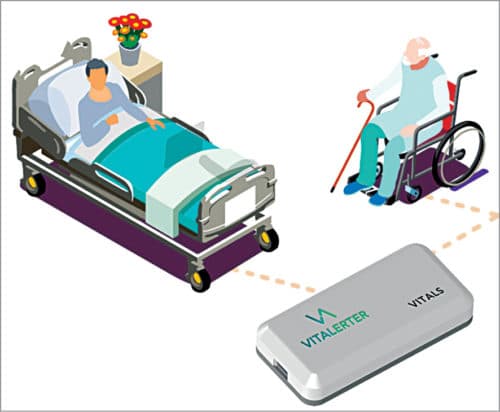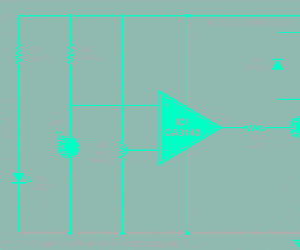It is often seen that late diagnosis of many diseases leads to loss of patients’ lives. In most cases, monitoring key parameters like respiration and heart rates, and hence early prevention as a response to warning signs can lead to better patient care, reduced hospital stays, and lower costs.
This led to the establishment of Vitaleter in Israel in 2016 with an aim to enable continuous preventive monitoring of vital signs for predicting future health risks for every person. In order to achieve this, the company designed a comprehensive Internet of Things (IoT) patient monitoring platform with the same name. The integrated platform uses small, lightweight, contact-free IoT biosensors along with artificial intelligence (AI) software to ensure accuracy.
The mobile biosensor continuously monitors heart rate, respiration rate, and body motion. It can be easily attached under the patient’s bed or wheelchair without any discomfort as compared to already available pressure mats in the market. The biosensor is wirelessly connected to the integrated care management system. Data including reports and graphical data analysis is sent via Wi-Fi to the cloud based machine-learning platform. It also alerts medical staff when a patient requires assistance. The alerts can be prioritised by the doctors so that the most important cases are not neglected while avoiding alarm fatigue.
This ensures close monitoring without the need for one-to-one nursing care all the time.
The advanced cloud based alerting system provides real-time actionable information from anywhere and a customisable monitoring dashboard identifies the risk of falling signals to avoid falls before they happen, and tracks bed-time and turn movements for ulcer prevention. Monitoring is also done to send irregular breathing alerts and heart incident alerts, improve sleep quality, and predict epileptic seizures, among others.
The device is waterproof with no physical wear, and connects via Bluetooth or Wi-Fi to standard or existing network infrastructure. The benefit is that the system is low-maintenance with no IT integration needed and the sensors are powered by mains or long-life batteries with wireless charging option, which makes it easy to reposition them. Security is ensured by encrypting all the stored data in secure Microsoft data centres. The modular nature of the system enables easy addition and reconfiguration of new sensors, functions, and algorithms to adapt to several needs of the users.
Besides leveraging available hospital infrastructure, the mobile app allows users to access the Vitalerter platform and is available on both Android and iOS for free. The target is to serve long-term care facilities, hospitals, and telecare providers, and improve safety, productivity, and efficiency with personalised care.

No special training is needed for the medical staff to start using the platform for advanced analytics. The startup claims an overall 42 per cent reduction in resident falls and 68 per cent reduction in a pressure ulcer. The system has been used in over ten thousand beds in Israel. Its adoption in other countries is also widely growing since it can be used for better management by integrating and not entirely replacing human assistance with AI.










